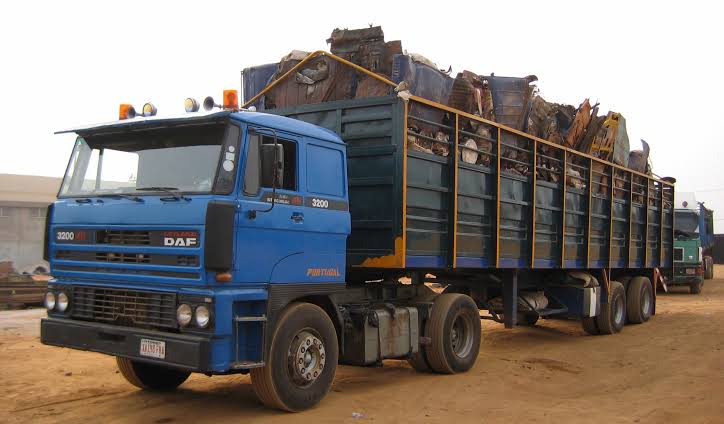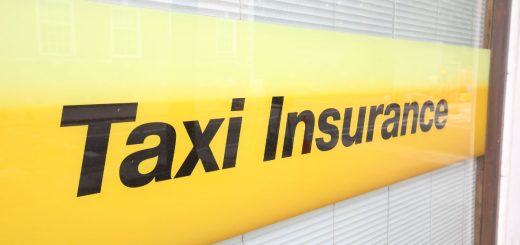Commercial Truck Insurance in Nigeria: All You Need Know
The trucking and logistics industry is a vital part of Nigeria’s economy.
However, operating commercial trucks comes with significant risks such as accidents, injuries, theft and damage to cargo.
Having adequate commercial truck insurance coverage is crucial for managing these risks and protecting trucking businesses from potential financial losses.
This article explores everything commercial truck fleet owners and independent truck drivers in Nigeria need to know about truck insurance. This write-up provides an overview of everything you need to know about obtaining the right commercial truck insurance policy in the Nigerian market.
WHAT YOU SHOULD KNOW ABOUT COMMERCIAL TRUCK INSURANCE IN NIGERIA
The following are the main commercial truck insurance policies that trucking companies and independent owner-operators in Nigeria should know.
COMPULSORY THIRD PARTY INSURANCE
Third party motor insurance is mandated by law for all commercial vehicles under the Road Traffic Act CAP 548 LFN 1990. This basic insurance policy covers bodily injury or death of third parties and damage to their property resulting from accidents you or your drivers cause while operating your insured trucks. However, compulsory third party insurance does not cover damage to your own vehicles.
COMMON ADD-ON COVERAGE OPTIONS
While third party liability insurance is legally required, most trucking companies in Nigeria take out comprehensive policies that bundle together third party coverage with additional protections including:
- Collision Insurance: Covers repair or replacement costs if your trucks are damaged in accidents.
- Comprehensive Insurance: Covers loss or damage to your trucks from causes such as fire, theft, vandalism and natural disasters.
- Passenger liability insurance: Provides coverage if passengers traveling in your trucks suffer injuries or death. This is important for trucks used for public transportation.
- Load insurance: Protects against loss or damage to the loads, cargo or goods being transported in your commercial trucks.
- Trailer interchange: Provides coverage when your trailers are interchanged with or attached to a power unit you do not own.
- Personal accident benefits: Offers compensation for death or bodily injuries sustained by drivers and co-drivers operating your insured trucks.
- Equipment and accessories coverage: Protects add-ons such as side mirrors, GPS systems and tarps from theft or damage.
- Hire purchase compensation: Covers outstanding loan payments owed to banks or other lenders in situations where your financed trucks are damaged or stolen.
HOW MUCH IS TRUCK INSURANCE IN NIGERIA?
The cost of commercial truck insurance in Nigeria can vary widely depending on several factors, making it difficult to pinpoint an exact figure.
As of January 2023, truck insurance in Nigeria is regulated by the National Insurance Commission (NAICOM).
They set minimum rates for third-party liability coverage, which is mandatory for all vehicles.
For trucks and general cartage vehicles, the minimum third-party liability coverage is ₦100,000 per year. This covers up to ₦5 million in damages to third-party property.
It’s important to note that this is just a minimum requirement, and you may be able to get more comprehensive coverage for your truck.
This type of coverage would typically include things like your truck’s value, driving history, fire and theft protection, as well as coverage for damage to your own vehicle.
To get an accurate quote for comprehensive coverage, you would need to contact a Nigerian insurance company directly and compare quotes based on your specific needs and vehicle details.
FACTORS THAT DETERMINE TRUCK INSURANCE COSTS
The premiums charged by underwriters for different truck insurance policies are influenced by many factors, including:
- Type of truck: Insurance for heavy-duty long haulage trucks generally costs more than light trucks.
- Age and condition of truck: Old trucks in poor mechanical condition attract higher premiums. Newer trucks in excellent working condition qualify for lower premium rates.
- Intended use: Local distribution trucks have lower exposure compared to long-distance cargo trucks plying highways more frequently.
- Claims history: Truck drivers and fleet owners with past insurance claims get charged higher premiums for being riskier to insure.
- Coverage limits: Higher liability limits, sums insured and wider coverage scope attract higher insurance rates.
HOW TO CHOOSE A TRUCK INSURANCE COMPANY IN NIGERIA
A key step when looking to purchase comprehensive commercial truck insurance is comparing offerings from leading domestic underwriters like Leadway, AIICO, Cornerstone and SUNU Assurances. Comparing aspects like:
- Premium rates for similar coverage scopes.
- Loss settlement procedures and turnaround times.
- Special bundled discounts or loyalty reward programs.
- Accessibility of contact centres to promptly handle inquiries and claims.
- Third party reviews on responsiveness and customer care.
While premium costs are important, having an insurer that delivers on promises during disputes should be the most critical factor for peace of mind.
HOW TO GET TRUCK INSURANCE IN NIGERIA
If you are looking to get quality commercial truck insurance in Nigeria, here are some tips:
- Determine your coverage needs based on operations type – cargo haulage, logistics, transportation services etc.
- Decide on suitable coverage limits based on truck value, cargo loads, passenger capacity etc.
- Get quotes from multiple top insurance providers to compare costs.
- Check the insurer’s rating, technical capacity and claims processing efficiency before you buy a policy.
- Read through policy terms to know exclusions, no-claim bonuses, compulsory excess payments etc.
GETTING REQUIRED PERMITS
Beyond having adequate insurance, owning and operating commercial trucks legally requires obtaining relevant licensing and haulage permits including:
- Driver’s licenses covering the appropriate truck weight classes.
- Road service licenses allowing for transportation of goods.
- Stage carriage permits for trucks doing public transportation.
- Interstate permits issued by joint regulatory authorities allowing cross-state trips.
Keeping valid permits on hand ensures smoother processes during documentation checks at state borders and ports to avoid disruption of business operations.
BENEFITS OF GETTING TRUCK INSURANCE IN NIGERIA
Before rounding up this article, let’s highlight some key reasons why operating commercial trucks without adequate insurance is ill-advised. They include:
- Meet legal requirements: Third-party motor insurance is mandated by law with minimum liability limits stipulated. Violators risk sanctions and penalties.
- Protect your assets: Comprehensive coverage shields trucking businesses from having to self-finance losses from severe risks like accidents and theft.
- Cover liability claims: Truck insurance policies protect the finances of insured truckers when passengers, clients’ goods or third-party properties get damaged.
- Improve creditworthiness: Holding valid truck insurance can enhance access to vehicle loans and other financing to grow a trucking business.
- Gain access to clients: Big shipping companies often require haulage vendors and logistics partners to hold minimum insurance limits before awarding contracts.
CONCLUSION
Do you operate or manage commercial trucks in Nigeria without adequate insurance coverage? By now you should know that truck insurance provides numerous benefits including loss protection, financing eligibility, client accessibility, and legal compliance.
I believe this article was helpful for you to know how to get commercial truck insurance in Nigeria.


